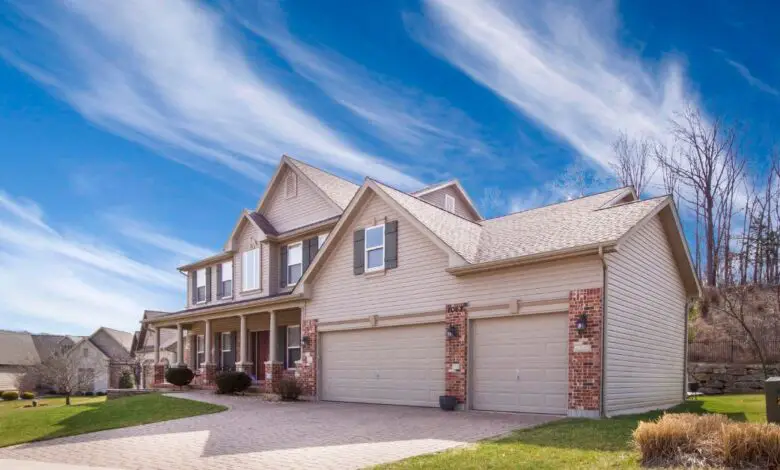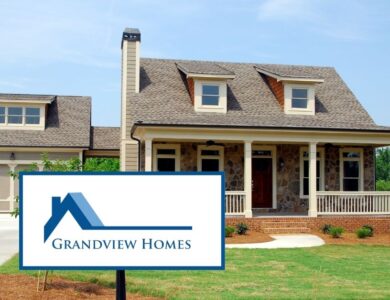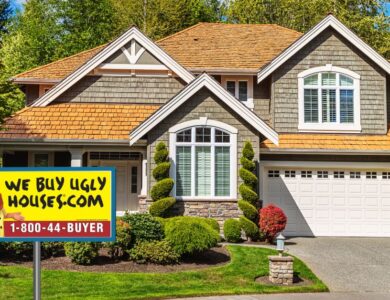Cost to Build a House Alabama: A Ultimate Guide for 2024

The average cost per square foot to build a new home in Alabama is about $134. So for a 2,000 square foot home, expect to spend about $267,000 plus. However, the total price ranges from $300,000 to $540,000 based on land, fees, materials, labour and other costs. A custom home takes an average of 9-12 months to build.
Key Takeaways
- The average cost to build a house in Alabama ranges $130 to $200 per square foot.
- For a 2,000 square foot home in Alabama it ranges $266,000 to $300,000.
- Total costs range from $300,000 to $550,000 depending on factors like location, property type, custom designs and finishes.
- Key costs include land, permits, labour, materials, financing fees and more that must be accounted for.
- New custom home construction takes 9-12 months on average.
The Average Home Building Expenses in Alabama
In Alabama, the average cost to build a new home is about $133.81 per square foot. For a 2,000 square foot house, basic construction costs come to around $267,620. However, you should budget $300,000 to $550,000 for your total spend when factoring in land, permits, customization, contractor fees, finishes and potential delays or overages.
Below is a table estimate of total new build costs based on square footage:
| Square Footage | Average Cost Ranges |
|---|---|
| 500 sq ft | $65,000 – $100,000 |
| 1000 sq ft | $130,000 – $200,000 |
| 1500 sq ft | $195,000 – $300,000 |
| 2000 sq ft | $260,000 – $400,000 |
| 2500 sq ft | $325,000 – $500,000 |
| 3000 sq ft | $390,000 – $600,000 |
| 3500 sq ft | $455,000 – $700,000 |
| 4000 sq ft | $520,000 – $800,000 |
| 4500 sq ft | $585,000 – $900,000 |
| 5000 sq ft | $650,000 – $1,000,000 |
Also read: How Much Does it Cost to Build a House Utah
Costs by Alabama Area
| Location | Cost Per Square Foot |
|---|---|
| Rural Areas | $100 – $150 |
| Small Towns | $150 – $180 |
| Suburbs | $120 – $170 |
| Major Metro Areas (Birmingham, Huntsville, Mobile) | $150 – $200 |
| Beach Communities (Gulf Shores, Orange Beach) | $150 – $200+ |
House Building Expenses Across States in US
| State | Average Amount |
|---|---|
| Alabama | $267,620 |
| Illinois | $265,440 |
| Utah | $288,560 |
| Massachusetts | $350,820 |
| Minnesota | $236,980 |
| Pennsylvania | $270,000 |
| Wisconsin | $424,000 |
| Oklahoma | $260,000 |
| Washington | $343,100 |
| Colorado | $299,300 |
| Alaska | $421,080 |
| Arizona | $295,580 |
| Arkansas | $251,800 |
| California | $405,440 |
| Connecticut | $345,440 |
| Delaware | $327,060 |
| Florida | $263,640 |
| Georgia | $273,860 |
| Montana | $298,960 |
| Nebraska | $210,900 |
| Nevada | $334,140 |
| New Jersey | $376,900 |
| New York | $360,180 |
| North Carolina | $301,500 |
| North Dakota | $212,500 |
| Ohio | $222,480 |
Also read: How Much Does it Cost to Build a House in Massachusetts
Breakdown of Typical Building Costs
- Land: $15-30 per square foot
- Permits & Fees: $4-8 per square foot
- Labor & Materials: $55-120 per square foot
- Financing Fees: $15-25 per square foot
- Contingencies & Overages: $10-20 per square foot
Buying Land in Alabama
The first step is purchasing property to build on. Land prices vary dramatically based on the location within Alabama:
- Rural area land generally runs $5,000 to $60,000 for a 1-2 acre lot
- Suburban lots in areas like Huntsville or Montgomery run $60,000 to $150,000
- Urban city lots in Birmingham cost $100,000+
Other factors impacting land costs include:
- Property taxes: Typically 0.4% of assessed value
- Infrastructure: Municipal water, sewer access, land grading
- Preparing foundations: Clearing trees/debris, erosion controls
- Amenities: Access to utilities, community features
- Zoning limitations: Residential build regulations
When budgeting, allot $15-30 per square foot for moderately priced land based on where you want to build.
Permitting Expenses
Before breaking ground, there are various local and state permitting costs. These approvals ensure your residential plans are up to code. Expect fees for:
- Planning approvals
- Site drainage plans
- County health checks
- Home blueprints
- Construction licenses
- Inspections (electrical, plumbing, HVAC, etc)
In total $4-8 per square foot goes towards permits and related expenses to build your home compliant with regulations. Be sure to research exact permitting costs based on location.
Construction Labor
Skilled construction labor accounts for 50%+ of total build expenses in Alabama. The costs breakdown as follows:
- Carpenters: $70 per hour
- Electricians: $65 per hour
- Plumbers: $70 per hour
- HVAC Techs $45 per hour
- Laborers: $35 per hour
To construct a full home requires 1,500-2,500 labor hours for qualified crews, depending on size and customization. This equates to $55-120 per square foot. Make sure to get multiple bids and check references before hiring contractors.
Building Materials
The other major construction expenditure comes from purchasing all required materials to frame, roof, side, insulate and finish out a new home.
For a standard 2,000 sq ft home, expect to spend $75,000 to $150,000 on building materials. The wide range accounts for basic versus premium grade finishes.
- Lumber packages: $25,000-$50,000
- Windows: $15,000 to $30,000
- External siding: $10,000 to $25,000
- Roofing: $15,000 to $30,000
- Insulation: $2,000 to $5,000
This equates to $35-75 per square foot depending on your desired quality for cabinets, flooring, lighting fixtures and appliances. Get multiple supplier quotes before purchasing.
Construction Financing Costs
Very few builders have the cash to pay 100% upfront. As a result, financing charges apply which commonly add 10-15% on top of the base build price.
Typical financing fees include:
- Loan origination 1-2%
- Title services 1-2%
- Credit report charges
- Appraisal fees $350+
- Loan initiation costs
- Interest payments
Overall plan for $15-25 per square foot in financing costs to fund construction over 6-12 months until completion. Compare lending rates from multiple providers.
Contingency Buffer
Even with the most meticulous planning, unexpected overages pop up. Change orders, weather delays, rework and cost escalations from subcontractors can quickly increase expenditures.
This is why a 10-20% contingency buffer is advised – which equates to $10-20 per square foot in Alabama. Having extra funds accounts for unforeseen incidents during months of ongoing home building.
Also read: How Much Does it Cost to Build a House in Minnesota
What Impacts the Costs?
There are a wide spectrum of variables that influence new construction expenditures in the area:
- Location – Urban lots cost exponentially more than rural lands in Alabama
- Size – Per square foot pricing becomes more efficient with larger build sizes
- Customization – More intricate home plans raise material and labor costs
- Finishes – High-end appliances, cabinets, bonus spaces quickly add $100k+
- Foundation – Basement, crawlspace, or slab changes structural expenses
- LAABOR Shortages – Lack of skilled trades crews due to demand influx
- Material Supply Issues – Covid disruptions raise material supply costs
- Contractor Bids – Compare detailed quotes as pricing varies greatly
How Long Does Construction Take?
You need to budget adequate time for completing all building phases when estimating your overall timeline.
For custom single family home construction, typical time frames are:
- Planning & Design: 4 – 8 Weeks
- Permitting & Financing: 4 – 8 Weeks
- Site Preparations: 2 – 4 Weeks
- Foundation Pouring: 2 – 4 Weeks
- Framing & Structures: 5 – 10 Weeks
- Enclosures & Systems: 10 – 15 Weeks:
- Roofing
- Plumbing
- HVAC
- Electrical
- Interior Finishes: 10 – 20 weeks
- Drywall
- Painting
- Trims/floors
- Cabinets
- Counters
- Inspections & Completion: 4 – 8 Weeks
TOTAL: 9 – 12 Months
Delays can happen depending on weather, crew/material availability and permitting.
Ways to Reduce Costs
Here are some key ways to reduce costs when building a house in Alabama:
- Choose affordable land outside high-demand urban areas
- Opt for production home plans vs custom designs
- Prioritise essential features over luxury finishes
- Supply own materials when possible to avoid markups
- Hire local subcontractors instead of a general contractor
- Complete basic interior finish work yourself
- Get quotes from at least 3 builders to compare
- Pay for permits/fees out of pocket rather than financing
- Stick to a strict budget with a 10-15% contingency
House Building Financing Options
- Construction Loans – Offered by banks/credit unions specifically for building costs. Typically require 20-25% down and 680+ credit score.
- Personal Loans – Unsecured loans based on creditworthiness. Can get up to $100k but have higher interest rates.
- Home Equity Loans – Leverage existing home equity to fund construction costs. Rates around 5-6%.
- 401K/IRA Loans – Borrow against retirement savings. Must be repaid quickly with low interest.
- Homestyle Renovation Mortgage – Freddie Mac program that lets you bundle purchase + renovation costs. 5-10% down payment required.
- FHA 203K – Government-backed mortgage that rolls construction costs into loan. Mandates property inspections and draw release schedule.
- Owner Financing – Some builders provide financing for qualified buyers if bank financing falls through.
- Crowdfunding – Generate capital from multiple online investors via specialty platforms.
- Hard Money Loans – Asset-based lending from private investors/companies at 8-15% rates. Require 20-30% equity minimum.
Benefits of Building Your Own Home
- Customization – Design home exactly to your needs and preferences
- Cost Savings – Potential to save money by acting as own general contractor
- Equity & Value – Generally get more for money invested versus existing home
- Quality Materials – Can choose higher-grade finishes and components
- Flexibility – Decide layouts, features to focus budget on priorities
- Appreciation – Home values from new constructions tend to rise quickly
- Personal Touches – Add special details like customized media rooms, wine cellars etc
- Pride of Ownership – Great sense of accomplishment realizing your dream home vision
- Future Planning – Design it with retirement or expanding family needs in mind
- Energy Efficiency – Utilize latest insulation, appliances for lower utility bills
Building vs. Buying a House: What is The Differences
When deciding whether to build or buy a home, there are trade offs to consider in terms of customization, pricing, timelines, and financial risks.
Building a custom home allows you to tailor the design, layout, materials and features to match your priorities. However, constructing a new residence generally costs more upfront and takes substantially longer than purchasing an existing home. Though you get to oversee the build quality and component grades used. Building also comes with greater financial risks if costs escalate above budget or you cannot secure financing upon completion.
On the other hand, buying an already built house is faster and provides certainty about the purchase price being within your approved mortgage amount. Yet you are limited to current inventory on the market, cannot dictate floor plans or finishes, and don’t know prior maintenance issues. Buying does allow you to move into a completed home within a few months after closing, rather than waiting 9-12 months for new construction.
So in summary – building offers personal customization while buying provides faster turnover at fixed pricing. There are solid arguments to each approach depending on your situation. Analysing the tradeoffs in cost, timeline and financial risks is vital.
Conclusion
Building a new custom home in Alabama ranges from $300,000 to $550,000, with the bulk of costs driven by size, location/property prices, materials selected, and finishing touches. Carefully weigh new construction versus buying an existing property based on your budget, lifestyle needs, and willingness to trade off control for potentially fewer upfront expenses.
Frequently Asked Questions (FAQ)
Typically it is cheaper to buy an existing home in Alabama rather than build new construction. You can purchase a modest starter home for $150,000-$200,000 compared to new build costs starting around $300,000.
In Alabama, to build a new home the average cost is about $133 per square foot. For a 2,000 square foot house, basic construction costs come to around $268,000. However, you should budget $300,000 to $600,000 for your total spend when factoring in land, permits, customization, contractor fees, finishes and potential delays or overages.
In Alabama, to build a new home the average cost is about $133 per square foot. For a 3,000 square foot house, basic construction costs come to around $402,000. However, you should budget $300,000 to $670,000 for your total spend when factoring in land, permits, customization, contractor fees and finishes.
The median listing price for homes in Alabama is currently around $250,000. For new custom-built homes, average prices run $350,000-$450,000.
The cheapest new home to build would likely be a small 1,500 square foot ranch style on a crawl space foundation without basement or garage. Using basic finishes and limited customization, total cost could be as low as $200,000.
Nationwide, the average cost to build a single-family home in the United States is $150 per square foot. It can range from $100-$300 per square foot based on land, fees, materials, labor and other costs. So the average price for a 2,500 square foot home is $250,000-$750,000 depending on location and finishes. High cost areas like California can exceed $1 million.
Buying is generally cheaper than building across most U.S. housing markets currently. However major urban centers with limited inventory may make new construction competitive if you want specific customization.
Yes, foreign nationals are allowed to purchase land and construct residences in the United States after clearing visa and regulatory requirements unique to non-citizens.




